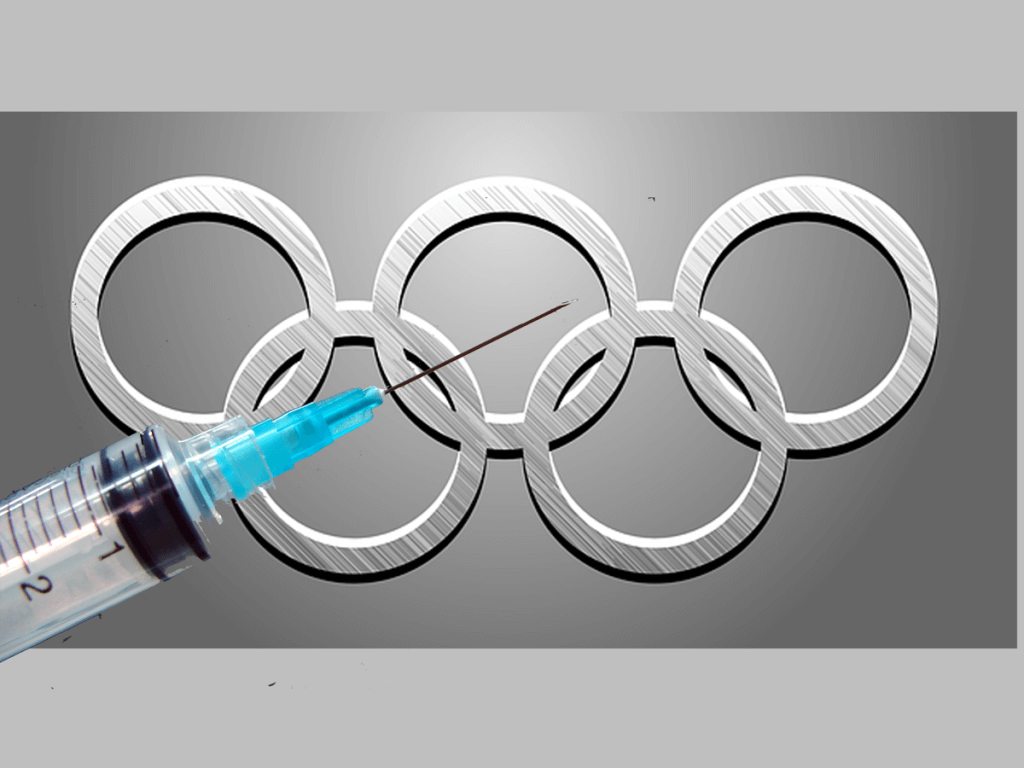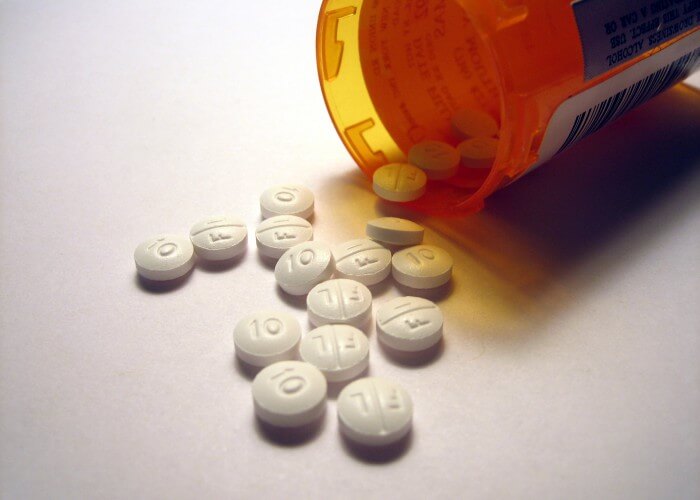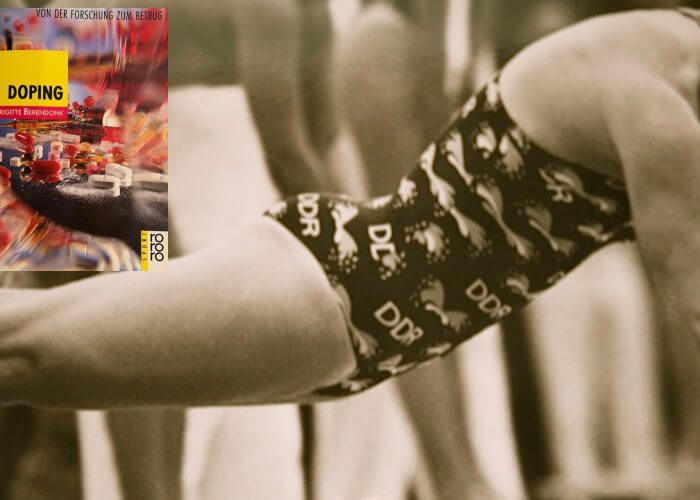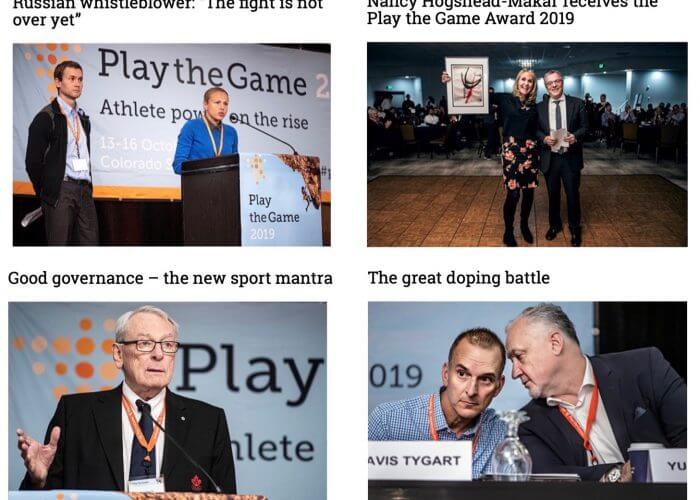WADA Bans Russia (Not All Russians) From International Sport For 4 Years

The World Anti-Doping Agency (WADA) has banned Russia from international sports events for the next four years in response to the manipulation of data related to thousands of doping tests.
The ban means Russia will miss the 2020 Olympic Games in Tokyo, as well as the Winter Games in Beijing in 2022.
However, the ban also leaves the door open for individual Russian athletes top prove themselves innocent and compete under a neutral flag. Those Russian athletes who are not implicated in doping may compete at a second straight Olympic Games, after Rio 2016, in neutral uniforms and with no flag nor anthem to accompany any medals they may win.
Cue complaints and legal challenges – on both sides of the argument. The sanctions go some way to acknowledging the seriousness of the latest Russian manipulation but fall shy of what many in world sport consider to be the zero-tolerance line that ought to be taken.
“The full list of recommendations have been unanimously accepted,” a spokesperson said.
The sanctions include:
- Russian athletes banned from major competitions
- Russian government officials barred from attending all major sporting events.
- Russia ineligible to host or even bid to host major events during the suspension period
The latter means that the European Swimming League (LEN) must cancel its contract with Kazan to hold the continental short-course championships in 2021, just two days after announcing the deal at a time when both parties to the agreement know of today’s WADA meeting and possible consequences.
Loopholes

WADA – what’s the best medicine for Russia?
Russian athletes who can prove to WADA’s satisfaction that they are clean and were not part of what it believes was a state-sponsored system of doping will still be allowed to compete under a neutral flag.
The Review Committee’s recommendation to ban Russia was based on its finding that Moscow had falsified doping data from the Russian Anti-Doping Agency’s (RUSADA) lab, which was handed over to WADA investigators in January.
Russian Sports Minister Pavel Kolobkov has attributed the discrepancies in the data to technical issues. Full disclosure of data from the Moscow laboratory had been a key condition of Russia’s controversial reinstatement by WADA in September 2018.
RUSADA had been suspended for nearly three years previously over revelations of a vast state-supported doping program contained in a 2015 WADA-commissioned report.
Russia now has 21 days to appeal the decision. If it chooses to do so, the case will be referred to the Court of Arbitration for Sport (CAS).
Sanctions ‘Don’t Go Far Enough’
The latest shaming of Russian authorities, sporting and political, comes four years after the details of a systematic doping programme and associated manipulation were made public.
Manipulation and cheating at the Sochi Winter Olympics in 2014 highlighted the shocking extent to which deception was common place in Russia’s elite sport program. Revealed in media reports, notably in The New York Times after the scandal was exposed in documentaries by the German TV station ARD and its doping investigations team, the whistle-blowing testimony of Grigory Rodchenkov, the former head of Russia’s national anti- doping laboratory, the Anti-Doping Center, in Moscow, was key.
Rodchenkov is now living in hiding in the United States after he revealed that, under the noses of international observers, problem doping samples were switched with clean samples through fake plug holes (“mouse holes” as he and the McLaren Report referred to the4m) in the wall of the laboratory set up to analyse samples at Sochi. A secret laboratory was hidden behind the known one in an operation that involved state security personnel, Rodchenkov claimed.

What suited the GDR – and how Brigitte Berendonk told the story of systematic doping and State Research Plan 14:25 – Main Photo Courtesy: NT Archive/Craig Lord
Critics of the latest WADA ruling, including athlete groups and national anti-doping agencies, have already said that the CRC’s recommended sanctions now adopted do not go far enough.
Many hundreds of Russian athletes are likely to still compete at Tokyo 2020 and Beijing 2022 despite the systematic scale of Russia’s deceit. In the mix are attempts to conceal, obfuscate and frustrate attempts to unmask the beneficiaries of a state-backed doping program the world has not seen the likes of since the Sporting Crime of the 20th Century, the GDR’s State Plan 14:25.
On the BBC Radio 4 Today program, Becky Scott, the former chair of the WADA Athletes’ Commission, scoffed at the idea that Russian athletes who could prove themselves “demonstrably clean” was “reasonable”. “It is not really a ban”, says Scott if it allows Russians to remain in the competitive environment when it was a “reasonable assumption” to conclude that some using that loophole had been a part of the systematic doping problem. She added:
“It is time to confront the entire system and the abuse of athletes in Russia.”
Russia is expected to contest the decision. It continues to deny many of the allegations despite the damning evidence collated and confirmed by several independent investigations.
If the sanctions stand, Russia will be barred form the Olympic realm, including major swimming events and the football World Cup in Qatar in 2022.
The Backdrop, Russian Whistleblowers and Threats
After Russia finally responded to d demands to put its house in order before being reinstated to full status in international sport only last year, it was asked to hand over missing doping data for thousands of samples by a deadline of end 2018. It missed the deadline and then, when it finally handed over, in January this year, a set of doping-test results to WADA from a database help at RUSADA’s Moscow laboratory, the evidence of manipulation was overwhelming.

Players in the Play The Game headlines (clockwise from top left) – whistleblowers Vitaly and Yulia Stepanov; Award winner Nancy Hogshead-Makar; Yury Ganus and Travis Tygart, heads of Rusada and Usada; and Dick Pound, of the IOC Photo Courtesy: Play the Game
Yuri Ganus, the head of the Russian Anti-Doping Agency (RUSADA), said the sanctions “were to be expected, and they’re justified” after the CRC recommendations were made known.
Just why Ganus felt as he did emerged with details of what had gone on when WADA demanded ‘hand over the data”
Instead of getting ready to hand over the req tired information, Russian authorities changed, deleted and manipulated the data to hide the truth, the 89-page report for WADA revealed.
In the mix were rewritten memos mined at making it look as though the man who exposed the plot – Rodchenkov – was leveraging the Russian doping scheme to line his own pockets. The rewrites sought to eliminate any record that one of Russia’s own key defence witnesses in the case had done anything wrong.
“Treat all the files the same, and you can take your Bonus home,” said one of the doctored messages, purported to have been written by Rodchenkov to another worker, Timofey Sobolevsky at the Moscow laboratory.
In fact, the original messages were to Sobolevsky from Evgeny Kudryavtsev and simply said “OK,” and “Tim, we will soon be giving it.” Kudryavtsev has called Rodchenkov a liar yet the evidence points to official Russian attempts to discredit and frame the whistleblower as dishonest by writing false lines about him into tyhe evidence about to be handed over to WADA.
Manipulations ran to thousands of doctored and concocted changes to evidence, the report for WADA noted. The deception was going on as late as January 16 this year, while WADA’s team was already in the laboratory in Moscow and being prevented form leaving with the data it had demanded.
WADA investigators described the manipulation as a “smoking gun” in Russian excuses offered as explanation for vast numbers of discrepancies: system malfunctions and routine space-clearing operations that occurred at the beginning of every year had delayed the process of handing over what was described as “23 million megabytes of data”.
Russian officials, the report stated, scoured through 11,227 of the exchanges to “identify and delete 25 highly inculpatory messages.”
“They therefore planted fabricated evidence into the 2019 … database that would allow them to blame those discrepancies on Dr Rodchenkov, Dr Sobolevsky” and another worker, the report said.
“Such bad faith is indeed stunning, and … it provides a lens through which the explanations offered by the Russian authorities for the following subsequent events should be observed.”
The Russian repose was lame. Foreign minister Sergei Lavrov called it the latest attempt among Western efforts “to put Russia in a defensive position accused of pretty much everything in every sphere of international life.”
The WADA Decision and Statement in full:
WADA Executive Committee unanimously endorses four-year period of non-compliance for the Russian Anti-Doping Agency
Today, the World Anti-Doping Agency’s (WADA’s) Executive Committee (ExCo) unanimously endorsed the recommendationmade by the independent Compliance Review Committee (CRC) that the Russian Anti-Doping Agency (RUSADA) be declared non-compliant with the World Anti-Doping Code (Code) for a period of four years.
Meeting in Lausanne, Switzerland, the 12-member ExCo supported the CRC’s recommendation, which includes a series of strong consequences and conditions of reinstatement in accordance with the International Standard for Code Compliance by Signatories (ISCCS).
The Chair of the CRC, Jonathan Taylor QC, took ExCo members through the CRC’s recommendation, which had been provided to ExCo members on 25 November together with the report of WADA Intelligence and Investigations (I&I) and that of the independent forensic experts from Lausanne University’s Institute of Forensic Science. This was followed by a number of questions from members, and discussions on specific aspects of the recommendation.
WADA President Sir Craig Reedie said: “The ExCo’s strong decision today shows WADA’s determination to act resolutely in the face of the Russian doping crisis, thanks to the Agency’s robust investigatory capability, the vision of the CRC, and WADA’s recently acquired ability to recommend meaningful sanctions via the Compliance Standard which entered into effect in April 2018. Combined, these strengths have enabled the ExCo to make the right decisions at the right time.
“For too long, Russian doping has detracted from clean sport. The blatant breach by the Russian authorities of RUSADA’s reinstatement conditions, approved by the ExCo in September 2018, demanded a robust response. That is exactly what has been delivered today. Russia was afforded every opportunity to get its house in order and re-join the global anti-doping community for the good of its athletes and of the integrity of sport, but it chose instead to continue in its stance of deception and denial. As a result, the WADA ExCo has responded in the strongest possible terms, while protecting the rights of Russian athletes that can prove that they were not involved and did not benefit from these fraudulent acts.
“On behalf of the ExCo, and of the many WADA stakeholders that supported the CRC recommendation, I would like to thank the members of the CRC for their expert and considered recommendation, as well as WADA I&I and the forensic experts for their skill, diligence and perseverance in getting to the bottom of this highly complex case.”
CRC Recommendation
The 26-page CRC recommendation outlines the key facts, which are mainly derived from the reports of WADA I&I and the forensic experts. These reports conclude that the Moscow data was intentionally altered prior to and while it was being forensically copied by WADA in January 2019.
To this end, the RUSADA reinstatement conditions, which were agreed by the WADA ExCo in September 2018 were not fulfilled in that the Moscow data are neither complete nor authentic. Jonathan Taylor reminded ExCo members that, in September 2018, the ExCo had deemed the requirement to provide an authentic copy to be a ‘Critical’ condition of the decision to reinstate RUSADA to the list of Code-compliant Signatories. It was deemed ‘Critical’ because:
- it would enable the anti-doping community finally to resolve and draw a line under the allegations of a systematic conspiracy to dope Russian athletes;
- it would ensure that any Russian athletes who had tested positive could be punished; and
- just as importantly it would ensure that innocent Russian athletes could be cleared of suspicion.
The WADA I&I report was based in particular on a forensic review of inconsistencies found in some of the data that were obtained by WADA from the Moscow Laboratory in January 2019. Following WADA’s decision on 17 September 2019 to open a formal compliance procedure against RUSADA, this review also included consideration of responses from the Russian authorities to a list of detailed and technical questions raised by WADA I&I and the independent forensic experts.
Based on the reports, it was clear to the ExCo that the Moscow data were neither complete nor fully authentic. As comprehensively outlined in the reports, some data were removed, others altered and, in some cases, system messages were fabricated in an effort to hamper the work of WADA investigators. In addition, measures were taken to conceal these manipulations by back-dating of computer systems and data files in an attempt to make it appear that the Moscow data had been in their current state since 2015.
Having considered all the facts and the recommendation – including the consequences and the reinstatement conditions – the ExCo endorsed the entirety of the CRC recommendation. WADA will now send a formal notice to RUSADA, asserting non-compliance with the requirement to provide an authentic copy of the Moscow data, and proposing the following consequences, to come into effect on the date on which the decision that RUSADA is non-compliant becomes final and to remain in effect until the fourth anniversary of that date (‘the Four-Year Period’):
Series of Consequences
- Russian Government officials/representatives may not be appointed to sit and may not sit as members of the boards or committees or any other bodies of any Code Signatory (or its members) or association of Signatories.
- Russian Government officials/representatives may not participate in or attend any of the following events held in the Four-Year Period: (a) the Youth Olympic Games (summer and winter); (b) the Olympic Games and Paralympic Games (summer and winter); (c) any other event organized by a Major Event Organisation; and (d) any World Championships organized or sanctioned by any Signatory (together, the Major Events).
- Russia may not host in the Four-Year Period or bid for or be granted in the Four-Year Period, the right to host (whether during or after the Four-Year Period) any editions of the Major Events.
- Where the right to host a Major Event in the Four-Year Period has already been awarded to Russia, the Signatory must withdraw that right and re-assign the event to another country, unless it is legally or practically impossible to do so. In addition, Russia may not bid for the right to host the 2032 Olympic and Paralympic Games, irrespective of whether the bidding takes place during or after the Four-Year Period.
- Russia’s flag may not be flown at any Major Event staged in the Four-Year Period.
- Neither the President, the Secretary-General, the CEO, nor any member of the Executive Board/Governing Board of either the Russian Olympic Committee or the Russian Paralympic Committee may participate in or attend any Major Event staged in the Four-Year Period.
- Russian athletes and their support personnel may only participate in Major Events staged in the Four-Year Period where they are able to demonstrate that they are not implicated in any way by the non-compliance with conditions including (without limitation) that they are not mentioned in incriminating circumstances in the McLaren reports, there are no positive findings reported for them in the database and no data relating to their samples has been manipulated, and that they have been subject to adequate in-competition and out-of-competition testing prior to the event in question according to WADA, in accordance with strict conditions to be defined by WADA (or the Court of Arbitration for Sport (CAS), if it sees fit), pursuant to the mechanism foreseen in ISCCS Article 11.2.6. In this circumstance, they may not represent the Russian Federation.
- Given the aggravating factors that are present in this case, RUSADA must pay all WADA’s costs on this file incurred since January 2019 and, in addition, a fine to WADA of 10% of its 2019 income or USD 100,000 (whichever is lower). This is the maximum fine available under the rules and all monies must be paid before the end of the Four-Year Period.
CRC Chair, Jonathan Taylor QC, said: “Today, the ExCo has delivered a strong and unequivocal decision. While being tough on the authorities, this recommendation avoids punishing the innocent and instead stands up for the rights of clean athletes everywhere. If an athlete from Russia can prove that they were not involved in the institutionalized doping program, that their data were not part of the manipulation, that they were subject to adequate testing prior to the event in question, and that they fulfil any other strict conditions to be determined, they will be allowed to compete.
“WADA now has the names of all suspicious athletes in the LIMS database, and thanks to the painstakingly forensic nature of the investigation, this includes the athletes whose data was manipulated or even deleted, including the 145 athletes within WADA’s target group of most suspicious athletes but also others beyond that target group.
While I understand the calls for a blanket ban on all Russian athletes whether or not they are implicated by the data, it was the unanimous view of the CRC, which includes an athlete, that in this case, those who could prove their innocence should not be punished, and I am pleased that the WADA ExCo agreed with this.”
WADA Director General Olivier Niggli said: “The fundamental objective of the new Compliance Standard is to maintain the confidence of stakeholders in the commitment of WADA and its partners to do what is necessary to defend the integrity of sport against the scourge of doping. The September 2018 decision to reinstate RUSADA under strict conditions broke a long-standing impasse by allowing WADA to deal with this matter under the strong legal framework of the new Compliance Standard. Since then, WADA I&I acquired the Moscow data and samples, more than 40 cases unaffected by the data manipulation and 14 cases from re-analysis of the samples have been shared respectively with International Federations and RUSADA for action – with more cases to come – and the sanctions endorsed by the ExCo today for manipulation of some of the data are strong and meaningful in a manner that could not have been achieved under the old rules.”
RUSADA’s Operations
As it relates to RUSADA, the ExCo concurred with the CRC’s view that “the evidence (including from WADA’s recent audits of RUSADA’s operations) indicates that RUSADA’s work is effective in contributing to the fight against doping in Russian sport, and that it is working productively in cooperation with other Anti-Doping Organizations, including in investigations within Russia”. Therefore, the ExCo accepted the recommendation not to impose any special monitoring or supervision or takeover of RUSADA’s anti-doping activities in the Four-Year Period.”
However, one of the conditions of reinstatement will be that WADA remains satisfied throughout the Four-Year Period that RUSADA’s independence is being respected and there is no improper outside interference with its operations.
Next Steps
As WADA communicated on 5 December, RUSADA will now have 21 days to accept the above-referenced notice.
- If RUSADA disputes WADA’s allegation, the matter will be referred to CAS (ISCCS Art. 10.4.1). Under the ISCCS, “If the Signatory wishes to dispute the asserted non-compliance and/or the proposed Signatory Consequences and/or the proposed Reinstatement conditions, then (in accordance with Article 23.5.6 of the Code) it must notify WADA in writing within twenty-one days of its receipt of the notice from WADA. WADA shall then file a formal notice of dispute with CAS, and the dispute will be resolved by the CAS Ordinary Arbitration Division.” Further to Article 23.5.9 of the Code, any CAS decision in relation to the non-compliance, the proposed consequences and/or the proposed reinstatement conditions will be binding and must be recognized and enforced by all Signatories.
- If RUSADA does not dispute WADA’s allegation, the consequences of non-compliance and the reinstatement conditions proposed by WADA will become a final decision, and any party that would have had a right under Code Article 23.5.7 to intervene in the CAS proceedings that would have taken place if RUSADA had disputed any aspect of WADA’s notice, has the right to appeal WADA’s decision to the CAS Appeals Arbitration Division within 21 days of the publication of RUSADA’s decision by WADA (ISCCS Art. 10.3.2). If no party appeals during these 21 days, the final decision must be recognized and enforced by all Code Signatories. If there is an appeal, the eventual CAS decision is binding on and must be recognized and enforced by all Code Signatories.
Meanwhile, WADA will liaise with Code Signatories and other stakeholders who may be affected by this decision, in order to clarify the next steps while bearing in mind that the case may still be appealed to CAS. To be clear, given the timing of this recommendation, it will not apply to next month’s Youth Olympic Games in Lausanne.




“Russian athletes to prove themselves innocent”. Why only Russian? They didn’t invent dope. We know lots of athletes from around the World who used doping and been disqualified. I do not trust anyone. Let’s make presumption of guilt legal!
Troy, the ‘proof’ of innocence doesn’t actually apply to any athlete, Russian or otherwise, if they have no case pending or question mark against them … that ‘proof of innocence’ stuff is there as little more than a PR tool and the bit that isn’t PR is aimed at the moment when athlete X shows up, his/her name is on a list of ‘problems’ (associated with manipulated data) and a process then starts in which, one assumes, WADA says ‘no’ and legal challenge follows… much like it did in 2016. In swimming, that meant ‘nothing’ happened … with no objection from FINA nor the vast bulk of its members federations… all of which left not to athletes and coaches to let their feelings be known, which is why we heard unprecedented booing and jeering in Rio … depending on events over the coming few months, Tokyo may end up being a repeat-plus version of some of the things we saw in Rio, athletes already quoted as saying ‘let them try and remove me or take my medal away’ should they protest during podium presentations and other such moments… governors are in the last-chance saloon. The presumption of guilt rests not at the feet of the athlete but those who have placed athletes in harm’s way through poor governance and self-interest that puts athlete welfare in the queue behind priorities of politics, power and money (be that big business, broadcast dollars and much else in the room when the Olympic family gathers)…